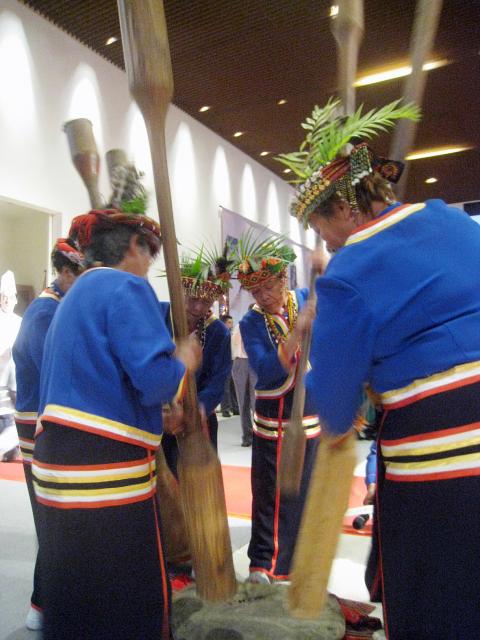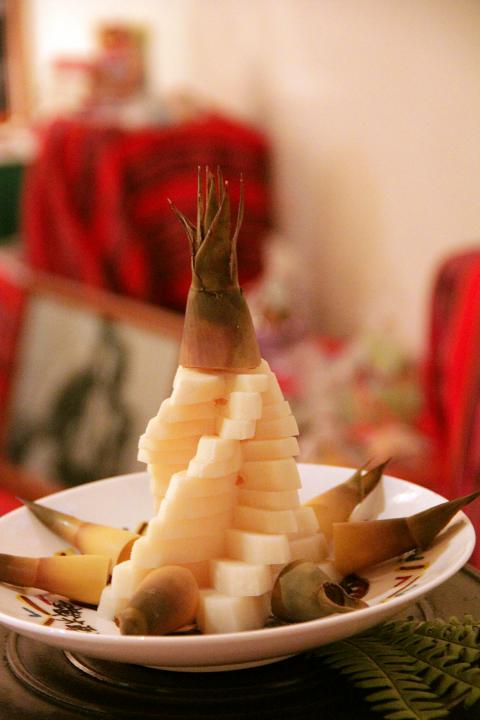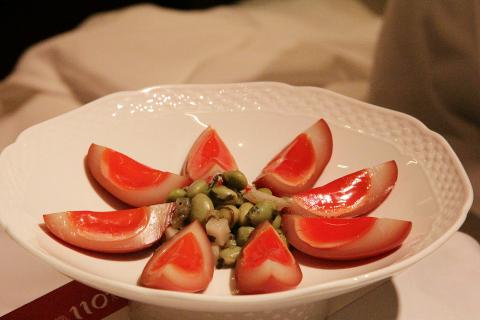Sun Moon Lake (日月潭) ranks among the most enduring of Taiwan’s tourism destinations. According to local lore, a Japanese colonist built a holiday house on the banks of Sun Moon Lake and named it Hanbi Lou (涵碧樓) way back in 1901. Today, The Lalu continues this heritage (the hotel’s Chinese name is still “Hanbi Lou”), and on the happy connection with the house built more than a century ago, is celebrating its 110th anniversary this year.
Sun Moon Lake has developed with great rapidity over the last decade, becoming a must-visit location for Chinese tourists for both its historical associations and scenery. In its celebrations, The Lalu, one of Taiwan’s most venerable super-luxury hotels, aims to celebrate its association with four distinctive periods of Sun Moon Lake’s development.
The first is that of the Thao (邵族) Aborigines, who have inhabited the area around Sun Moon Lake since time immemorial. The tourist influx has proved a mixed blessing, but at least it has provided the impetus for a resurgence in traditional skills and the creation of commercial opportunities. Craft items of all qualities, from cheap dross to works by established artists, are now widely available.

Photo: Ian Bartholomew, Taipei Times
The second phase was the period of Japanese colonial occupation. During this time, the status of Sun Moon Lake was highlighted by a visit by the then-crown prince and future emperor Hirohito, who gave his imperial approval to the name Hanbi Lou, and said various complementary things about the area’s scenic beauty. His visit has done wonders for encouraging Japanese tourism to Sun Moon Lake.
The third distinct period followed the Chinese Nationalist Party (KMT) government’s arrival in Taiwan and the construction of a holiday house for Chiang Kai-shek (蔣介石) on the present site of The Lalu. This association with the Generalissimo, who built holiday homes at some of Taiwan’s most spectacularly scenic locations, further burnished Sun Moon Lake’s reputation as a resort.
Hanbi Lou was subsequently converted into a luxury hotel, and following the completion of extensive renovations in 2002, it established itself as one of Taiwan’s most exclusive hotels. At a press conference last week to celebrate the 110th anniversary of the hotel, the recently appointed head of the Sun Moon Lake National Scenic Area Administration, Chang Jenn-chyan (張振乾), boasted that The Lalu had set a high mark (both in price as well as standards) for luxury accommodation in the Sun Moon Lake area. With many new luxury hotels now established along the banks of lake, great energy is being dedicated to improving the overall standard of goods and services in the area.

Photo courtesy of The Lalu
For the anniversary, The Lalu has created a splendid menu that celebrates the food representing the diverse influences that give Sun Moon Lake its unique character. Chefs have used the rich culinary traditions of the Thao to create some exciting dishes. The banquet includes a sophisticated twist on salted boar meat, served as part of a cold starter, and a dish of shrimp marinated in millet wine (小米酒) and stuffed with soft millet grains.
From the Japanese period, there is “president fish,” or lobed river mullet, cooked with plum and perilla. President fish was supposedly a favorite of Chiang’s, though the use of plum and perilla to flavor and garnish the dish give it a distinctly Japanese twist. While the fish is much in demand by tourists because it is indigenous to the lake and the flesh is particularly fine, it is marred by the presence of innumerable Y-shaped bones that seem specifically designed to cause maximum inconvenience to those eating it. Other dishes celebrate Chiang’s association with the Zhejiang region of China, represented by dishes such as Suzhou-style spare ribs.
As a luxury hotel, The Lalu is cementing ties with China by bringing over top chefs to create classic dishes. One of the most exciting is whole fish cooked in water taken directly from Sun Moon Lake. The water is infused with the fragrance and sweetness of the fish through the skill of the chef, and is one of those dishes in which apparent simplicity belies years of experience in expertly drawing out the right flavors.

Photo courtesy of The Lalu
These dishes provide local references, historical associations and a sense of innovation, giving the dining experience something more than can be gained from conventional international cuisine. While The Lalu is keen to emphasize its unique links to Taiwan and Sun Moon Lake, it is also looking to expand its luxury hotel concept abroad, particularly to the burgeoning China market.
According to hotel chairman Lai Cheng-i (賴正鎰), The Lalu has ambitions to create 18 new hotels in China. A new resort, also emphasizing luxury and personalized service, has already broken ground in Qingdao, Shandong Province.

Cheng Ching-hsiang (鄭青祥) turned a small triangle of concrete jammed between two old shops into a cool little bar called 9dimension. In front of the shop, a steampunk-like structure was welded by himself to serve as a booth where he prepares cocktails. “Yancheng used to be just old people,” he says, “but now young people are coming and creating the New Yancheng.” Around the corner, Yu Hsiu-jao (饒毓琇), opened Tiny Cafe. True to its name, it is the size of a cupboard and serves cold-brewed coffee. “Small shops are so special and have personality,” she says, “people come to Yancheng to find such treasures.” She

Late last month Philippines Foreign Affairs Secretary Theresa Lazaro told the Philippine Senate that the nation has sufficient funds to evacuate the nearly 170,000 Filipino residents in Taiwan, 84 percent of whom are migrant workers, in the event of war. Agencies have been exploring evacuation scenarios since early this year, she said. She also observed that since the Philippines has only limited ships, the government is consulting security agencies for alternatives. Filipinos are a distant third in overall migrant worker population. Indonesia has over 248,000 workers, followed by roughly 240,000 Vietnamese. It should be noted that there are another 170,000

Hannah Liao (廖宸萱) recalls the harassment she experienced on dating apps, an experience that left her frightened and disgusted. “I’ve tried some voice-based dating apps,” the 30-year-old says. “Right away, some guys would say things like, ‘Wanna talk dirty?’ or ‘Wanna suck my d**k?’” she says. Liao’s story is not unique. Ministry of Health and Welfare statistics show a more than 50 percent rise in sexual assault cases related to online encounters over the past five years. In 2023 alone, women comprised 7,698 of the 9,413 reported victims. Faced with a dating landscape that can feel more predatory than promising, many in

Former Chinese Nationalist Party (KMT) chairwoman Hung Hsiu-chu’s (洪秀柱) attendance at the Chinese Communist Party’s (CPP) “Chinese People’s War of Resistance Against Japanese Aggression and the World Anti-Fascist War” parade in Beijing is infuriating, embarrassing and insulting to nearly everyone in Taiwan, and Taiwan’s friends and allies. She is also ripping off bandages and pouring salt into old wounds. In the process she managed to tie both the KMT and the Democratic Progressive Party (DPP) into uncomfortable knots. The KMT continues to honor their heroic fighters, who defended China against the invading Japanese Empire, which inflicted unimaginable horrors on the